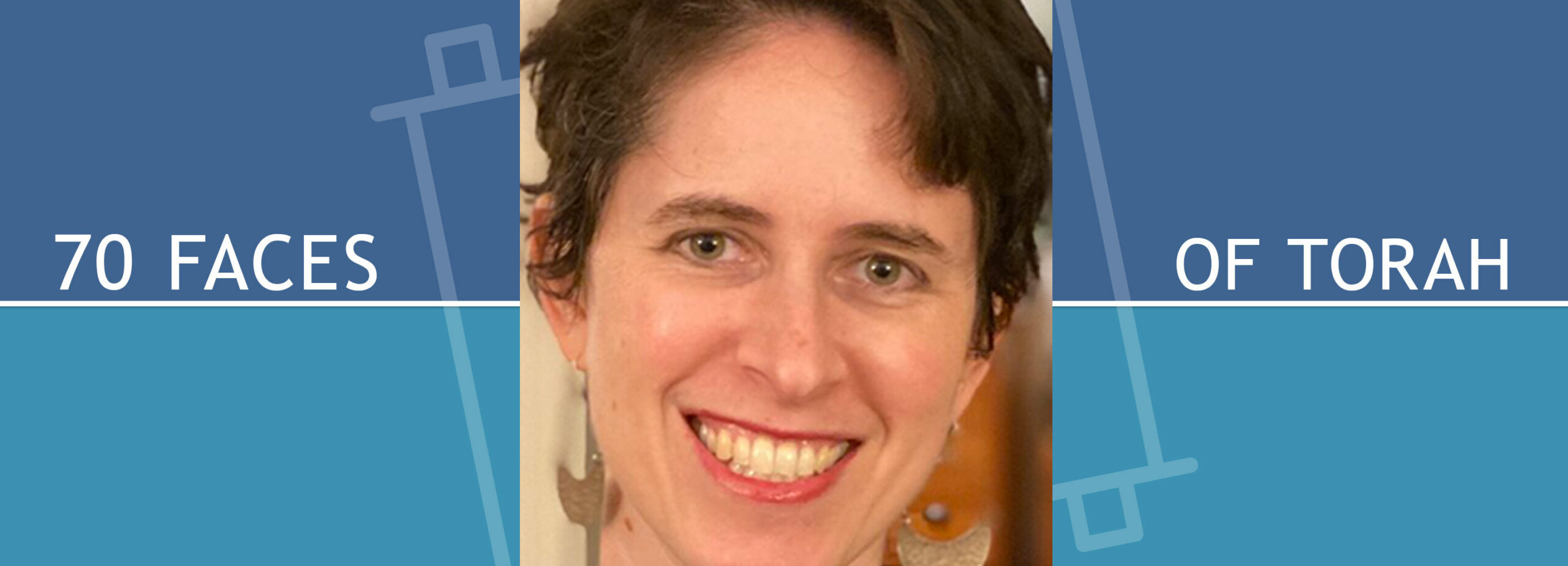Numbers Navigating the Land: Courage and Curiosity

Parshat Sh’lach L’cha, Numbers 13:1-15:41
Last November 9, I found myself in a new land. Distraught, I tried to put my finger on the root of my distress. It wasn’t just that I found the outcome of the election tragic for many reasons; I was experiencing something more profound, resembling extreme disorientation.
I finally figured it out when I was reminded of Dr. Martin Luther King Jr.’s famous quote, “The arc of the moral universe is long, but it bends toward justice.” Prior to that day, in my mind’s eye I had seen my country at a certain place on that beloved arc, and now, as in an eerie movie, the camera zoomed out and behold! The arc’s trajectory lengthened, jutting far into the distance.
Well, this was demoralizing.
And yet I am reminded by this week’s Torah portion that it is at the moment of demoralization that we have the greatest opportunity to stretch our hearts towards hope, curiosity, and courage.
When ten of the twelve scouts in Parshat Shlach L’cha bring back the news that, while God’s land is indeed flowing with milk and honey, it is also chock full of terrifying people, they say, “And we were in our own eyes as grasshoppers, and so were we in their eyes.” In a stunning midrash on this verse, the Holy One says to the scouts:
“You don’t know what you have just let your mouths utter. I am ready to put up with your saying, ‘We were in our own eyes as grasshoppers.’ But I do take offense at your asserting, ‘And so were we in their eyes’ Could you possibly know how I made you appear in their eyes? How do you know that in their eyes you weren’t like angels?” (Tanchuma, Shlach L’cha Parasha 7)
The scouts do not lack imagination – they imagine all kinds of frightening defeats at the hands of those who already dwell in this sacred land. But they lack a life-affirming curiosity that might have helped them look at the situation in a new light. “What might we be missing?” they might have asked. “How might God be with us in ways we don’t yet understand?” “Who are these strangers really, and how might we get to know them?”
Poignantly, this midrash doesn’t end with the line “How do you know that in their eyes you weren’t like fierce warriors?” It ends with the radically redemptive possibility that these would-be enemies might actually have seen the scouts as angels, as messengers of the divine – the way they might even have seen themselves had they been able to keep their hearts open.
When we are faced with an outcome we do not want or expect – an election result, a piece of bad news, a new situation where we feel intimidated – how do we react? Do we close our hearts? Do we get paralyzed like the scouts? Do we wish we were already dead, like the Israelites upon hearing the scouts’ report? While these reactions grab hold of us at times and can feel inevitable, they ultimately stem from a lack of ability to tolerate the unknown, and a frantic impatience to regain control and a fear of no longer being where we thought we were standing – on the arc of the moral universe, or anywhere else.
As part of their second panicked report, the scouts burst out that “The land is one that consumes those who dwell in her” (Numbers 13:32). One commentator mischievously misreads this line. For him, “the land” symbolizes our lives, the physical plane of existence in vulnerable corporeal bodies:
“The Blessed Holy One is cloaked in each [thing that arises in our lives – for example love and fear]. You just have to take care to raise up every thought. If thoughts of love come to you, lift them up. The same with fear [and all the rest]. Don’t just dwell or sit there with them! That would be really foolish.” (Or Torah from Massa’ey, translation in Speaking Torah, Vol .2 on Shlach L’cha).
In other words, it is true that “the land” eats those who “dwell” there. Any time we get stuck in our own reactions and narratives without lifting them up to God and opening ourselves to divine help and perspective, we can get “eaten” by our emotions, pulled out of the discipline and awareness it takes to face life with curiosity, compassion, and courage – the heart of a spiritual path.
New research shows that hope is not an emotion; it is a habit of mind that can be cultivated and chosen. It is exactly the choice that Caleb and Joshua make in Numbers 14:6-9, when they do not deny the fearful report of the other scouts, but simply choose to have faith that God will be with them. This is the lesson of the scouts’ reactions: when encountering fear and disorientation, we have a choice about where we go from there.
So now I carry this sign when I go to marches:
The arc of the moral universe is longer than I thought, but it is still bending.
Rabbi Shoshana Meira Friedman was the associate rabbi for Temple Sinai of Brookline, MA and currently serves as director of Hebrew College Artist Beit Midrash. She was ordained at the Hebrew College Rabbinical School in 2014.

